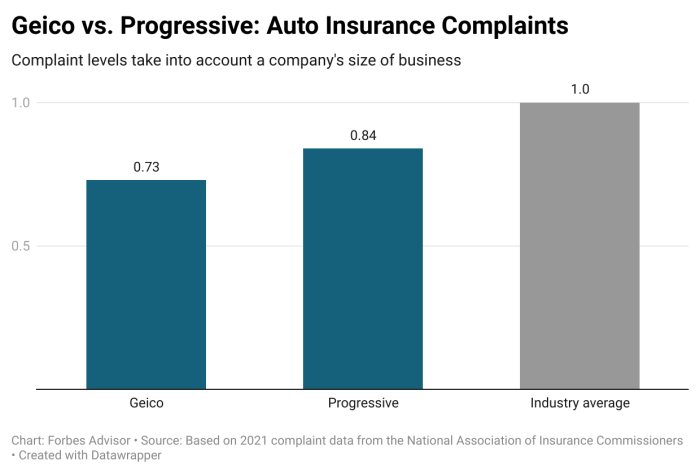Regular check-ups with a primary care physician play a crucial role in maintaining overall health. From early detection of potential issues to personalized care, these visits offer a range of benefits that contribute to a healthier lifestyle.
Let's dive into the importance of these regular appointments and how they can positively impact your well-being.

Importance of Regular Check-Ups
Regular check-ups with a primary care physician play a crucial role in maintaining overall health. These routine visits are essential for early detection and prevention of potential health issues, allowing for timely interventions and treatments. Moreover, establishing a long-term relationship with a primary care physician enables personalized care tailored to individual health needs.
Early Detection and Prevention
Regular visits to a primary care physician can help in the early detection of various health conditions such as high blood pressure, diabetes, and certain cancers. By monitoring key indicators and conducting necessary screenings, healthcare providers can identify potential issues before they escalate, leading to better treatment outcomes and improved prognosis.
Personalized Care
Having a consistent primary care physician allows for continuity of care and the development of a comprehensive health history. This enables healthcare providers to understand a patient's unique health profile, risk factors, and preferences, leading to personalized treatment plans and preventive measures.
Building a strong patient-provider relationship fosters trust and open communication, enhancing the quality of care delivered.
Health Promotion and Education
Regular check-ups provide an opportunity for healthcare providers to educate patients on healthy lifestyle choices, disease prevention strategies, and appropriate screenings. Through ongoing guidance and support, primary care physicians empower individuals to take control of their health and make informed decisions regarding their well-being.
By promoting health awareness and disease prevention, regular check-ups contribute to a proactive approach to healthcare management.
Comprehensive Health Assessments
Regular check-ups with a primary care physician often involve comprehensive health assessments that play a crucial role in maintaining overall well-being. These assessments help in detecting potential health issues early on and monitoring existing conditions effectively.
Types of Screenings and Assessments
Regular check-ups typically include screenings and assessments such as blood pressure monitoring, cholesterol level checks, blood tests for various health markers, and evaluation of overall wellness. These tests provide valuable insights into the state of one's health and can help in identifying any abnormalities or risk factors.
Role of Preventive Care
Preventive care is essential in managing chronic conditions through regular monitoring and early intervention. By keeping track of key health indicators during check-ups, physicians can work with patients to develop personalized care plans aimed at preventing the progression of diseases and maintaining optimal health.
Continuity of Care
Having a primary care physician who is familiar with your medical history offers numerous benefits
. This familiarity allows for a deeper understanding of your health needs and concerns, leading to more personalized and effective care. When your primary care physician knows your medical history, they can better identify any changes or patterns in your health over time.Continuity of care plays a crucial role in coordinating treatments and ensuring better health outcomes.
With a primary care physician overseeing your care consistently, there is improved communication and collaboration among healthcare providers. This leads to a more holistic approach to managing your health, reducing the likelihood of gaps in treatment or conflicting advice.Regular follow-ups with your primary care physician are essential to track your progress and make any necessary adjustments to your treatment plan.
These follow-ups allow for ongoing monitoring of your health status, early detection of any potential issues, and timely interventions when needed. By staying engaged with your primary care physician through regular check-ups, you can maintain optimal health and well-being in the long run.
Health Promotion and Disease Prevention
Regular check-ups with a primary care physician play a crucial role in health promotion and disease prevention. These visits provide an opportunity for physicians to offer guidance on lifestyle changes that can lead to better health outcomes for patients.
Role of Preventive Care
Preventive care is essential in promoting healthy habits and reducing the risk of developing chronic diseases. Primary care physicians can discuss various preventive measures during regular check-ups to help patients maintain good health and prevent future health issues.
- Encouraging regular physical activity: Physicians can emphasize the importance of staying active and suggest suitable exercise routines based on the patient's health status.
- Promoting healthy eating habits: Physicians can provide dietary recommendations to help patients make healthier food choices and maintain a balanced diet.
- Screening for risk factors: Regular check-ups allow physicians to assess the patient's risk factors for certain diseases and recommend appropriate screenings or tests for early detection.
- Immunizations: Primary care physicians can ensure that patients are up to date on their vaccinations to protect against preventable diseases.
Epilogue
In conclusion, regular check-ups with a primary care physician are not just routine visits but key to proactive healthcare management. By prioritizing these appointments, you are investing in your long-term health and well-being.
Clarifying Questions
How often should I have a regular check-up with my primary care physician?
It is generally recommended to have a check-up at least once a year. However, your physician may suggest a different frequency based on your health needs.
What can I expect during a regular check-up?
During a check-up, your physician may conduct screenings, assessments, and discuss any health concerns you have. It is also a good time to review medications and update your medical history.
How important is it to establish a long-term relationship with a primary care physician?
Building a lasting relationship with your primary care physician enables personalized care, better management of chronic conditions, and improved health outcomes over time.









